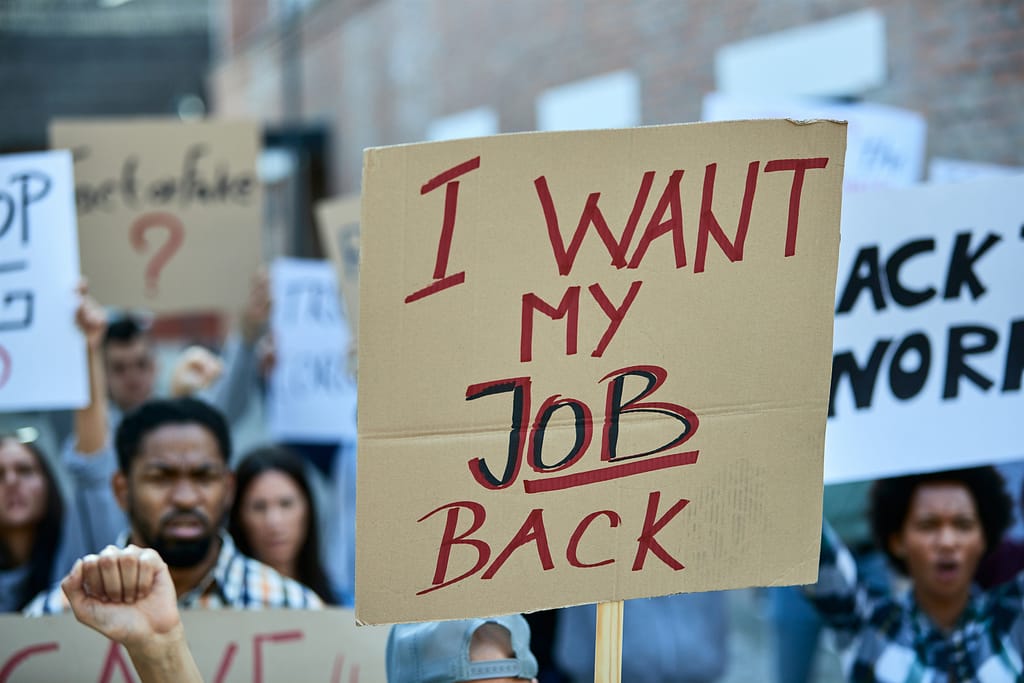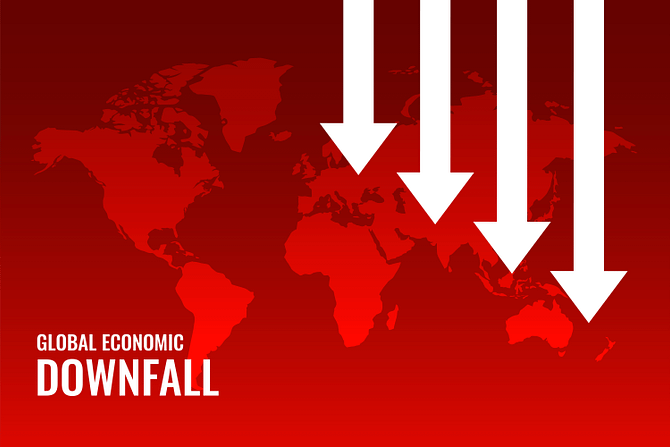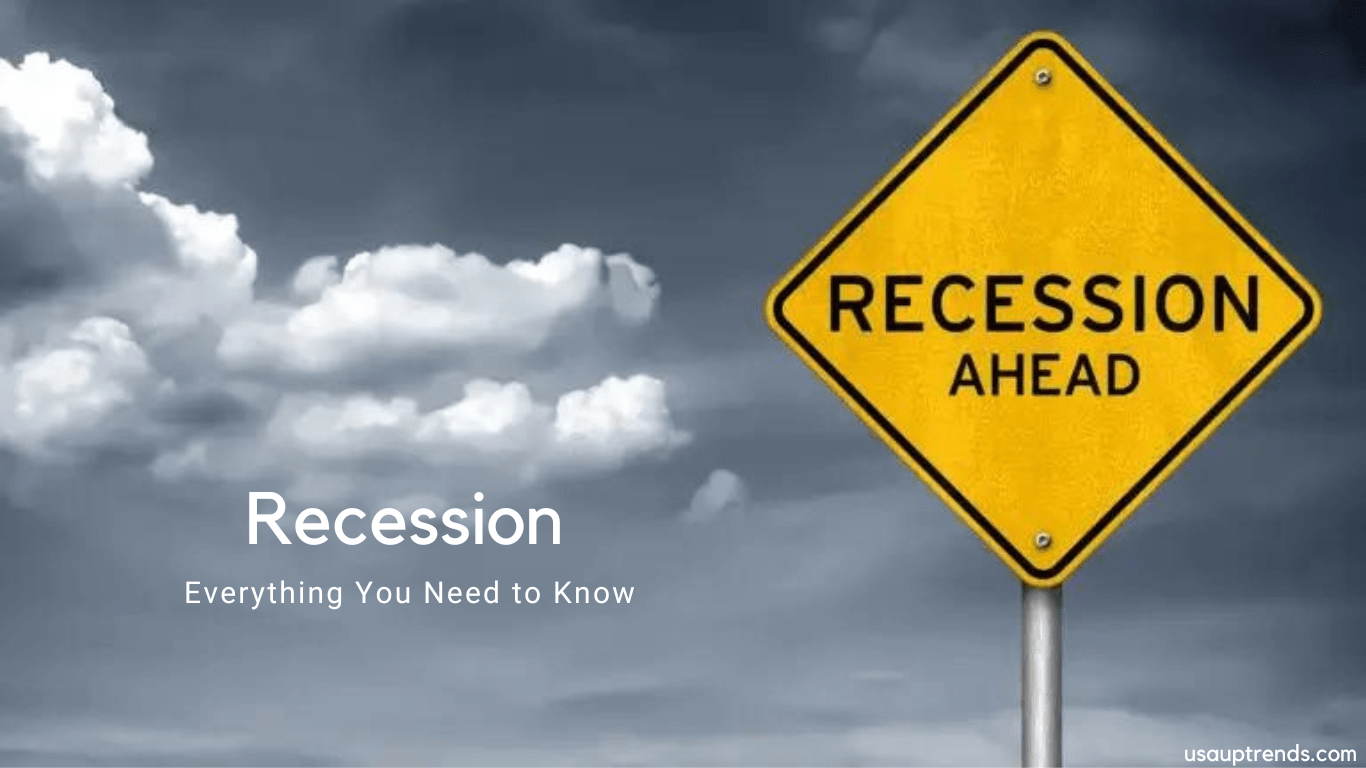This article explains the most asked questions about recession like what is a Recession and are we heading towards one? What happens during a recession? How Does a Recession Affect the Average Person? How to survive a recession? What is a Stock market crash, global recession, or economic downturn?
What is the Recession?
When economic activity drops for months or even years, it’s called a recession. During a recession, a nation’s economy experiences negative gross domestic product (GDP), rising unemployment, falling retail sales, and falling income and manufacturing for a long time.
What Happens During a Recession?

In a recession, individual spending reduces, causing the economy to shrink. As a result, companies can cut down on hiring, further contributing to the contraction of economic activity. Recessions can cause unemployment to rise and total employment levels to plateau. Furthermore, GDP growth tends to shrink during recessions due to lower consumer demand and fewer employees, resulting in lower production of goods and services. During a recession, housing prices can decrease as well.
All else equal, if you have fewer employees, you’re going to potentially produce less in a recession. All of these factors are related. In most cases, these indicators are either slowing down or contracting. Recessions affect wages as well. A worker’s salary request could be denied if unemployment is high and an employer claims that another worker could replace him or her for a lower wage instead of a higher one.
How Does a Recession Affect the Average Person?
In a recession, the first thing that happens is that people lose their jobs. This was the case during the Great Recession and the short-lived pandemic recession. Since finding new employment during a recession is not easy, people are often left unemployed for prolonged periods, which results in them drawing down their savings and making it harder to pay their bills.
People who are already in a vulnerable position—employed in low-paying jobs that prevent them from saving enough money to fall back on in hard times—may be forced into debt by a recession as often is the case. In turn, this adversely affects their ability to access key services such as health care, as many lose their health insurance as a result of losing their employment.
Some homeowners might fall behind on their mortgage payments, while those who have never bought a house before might have to wait longer to afford one.
Are We Heading Towards a Recession?
Investors around the world are more likely to buy the dollar when the US central bank raises interest rates, as it has been doing since March. When central banks already face pandemic-induced inflation, they tend to raise interest rates higher and faster to bolster their currencies. Wall Street has been hit with whiplash, and stocks are now on track for their worst year since 2008. Energy prices have soared and supplies have decreased since the West stopped importing Russian natural gas.
In 2023, the global recession is likely to occur, although it’s impossible to predict how severe it will be or how long it will last. Not every recession is as painful as the 2007-09 Great Recession, but every recession is painful, of course. In particular, the United States will be able to withstand the blow better than others thanks to its strong labor market and resilient consumers.
How to Survive A Recession?

The economy isn’t in a recession yet, but it is likely headed toward one, many economists predict a recession in 2023. Build up an emergency fund. You need money for a rainy day. If you’re still working, you’ll want to save money just in case. An emergency fund is one of your main financial tools. You should look for new opportunities if you feel your company will have layoffs during this economic crisis. Find ways to save money, learn new skills, and diversify your income streams.
What is Stock Market Crash, Global Recession and Economic Downturn?

Stock market crashes occur when stock prices decline dramatically across a major section of a market, resulting in significant losses in paper wealth. They are typically caused by panic selling and economic factors. As a result of speculation and economic bubbles, crashes often follow.
In a Global recession, economic growth is extended across multiple countries. As trade relations and international financial systems transmit economic shocks and recession impacts from one country to another, a global recession consists of several more or less synchronized recessions across many national economies. Since World War II, there have been four global recessions, beginning in 1975, 1982, 1991, and 2009. The IMF declared a new global recession in 2020, dubbed the Great Lockdown, due to the widespread implementation of quarantines and social distancing measures during the COVID-19 outbreak. Since the Great Depression, there has been no global recession as severe as this one.
Generally, an Economic Downturn refers to a long period of decreased economic activity. A financial crisis might occur in a particular region (for example, the Asian financial crisis in the late 1990s) or globally (for instance, the global financial crisis in the late 2000s). An economic downturn is characterized by high unemployment, declining stock and housing values, weak consumer confidence, and a decline in investment.
The Great Recession – 2008 Market Crash
In 2007, the Great Recession occurred when global national economies deteriorated substantially, i.e., experienced a recession. The severity and timing of the recession varied by country. This was the worst financial and economic crisis since the Great Depression, according to the International Monetary Fund (IMF) at the time. Normal international ties were severely disrupted as a result. Between 2005-2012, a series of trigger events began with the burst of the United States housing bubble which caused the Great Recession.
Investment banks’ mortgage-backed securities fell in value when property prices collapsed and homeowners defaulted on their mortgages in 2007-2008, prompting several to fail or be bailed out by September 2008. Subprime mortgages erupted during 2007-2008. As a result of banks being unable to lend to businesses and homeowners paying down their debt rather than borrowing and spending, the Great Recession officially started on December 20, 2008.
Although most developed economies, especially those in North America, South America, and Europe, suffered a severe, prolonged recession, many of the more recently developed economies, such as China, India, and Indonesia, did not suffer as much.
Take a look at what happened during the 2008 market crash

[…] deep cuts to their employee base as part of their restructuring efforts to navigate a potential downturn in the global economy. Yet 33,000 job cuts were recorded last month, the highest since February 2021. India’s IT […]
[…] Check out our blog on Recession. […]
Do you mind if I quote a couple of your articles as long as I provide credit and sources back to your website? My blog site is in the very same niche as yours and my users would certainly benefit from some of the information you present here. Please let me know if this is okay with you. Thanks!